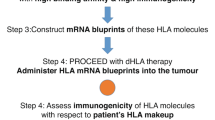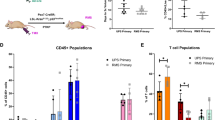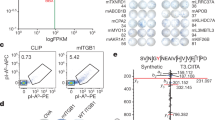Abstract
Extensive experience with isotransplants of 27 different tumours (leukaemias, sarcomata, carcinomata), all of strictly spontaneous origin in laboratory bred mice of low cancer strains CBA/Ht and WHT/Ht, has revealed no evidence of tumour immunogenicity. Of approximately 20,000 maintenance transplants, none failed and none regressed; of almost 10,000 carefully observed tumours arising from small or minimal inocula of tumour cells, none spontaneously regressed. The number of injected viable tumour cells required to give a 50% probability of successful transplantation (the TD50) ranged from approximately 1 cell to greater than 10,000 cells among the 27 tumours; high TD50 values, which were dramatically reduced by various procedures having no immunological significance, did not signify active "resistance" of the hosts. In the case of all of 7 randomly selected tumours, prior "immunization" of recipients with homologous lethally irradiated cells increased their tumour receptivity. Several experiments using various tumours failed to give evidence that immunity could be non-specifically induced or that a massive preponderance of lymphocytes from specifically sensitized mice could inhibit tumour transplantation or growth in vivo; no trace of "resistance" to tumour was adopted by isogeneic recipients of lymphocytes from regional nodes of tumour bearers. A limited review of the recent literature on tumour immunity shows that practically all the animal data presented in support of a general theory of tumour immunogenicity or to provide a basis for active clinical immunotherapy have been obtained from transplanted tumour systems which entail artefactual immunity associated with viral or chemical induction of the tumours or their allogeneic transplantation. It is suggested that isotransplants of spontaneously arising tumours are the only appropriate models of human cancer and that any genuine rapport between the animal laboratory and the clinic requires their exclusive use.
This is a preview of subscription content, access via your institution
Access options
Subscribe to this journal
Receive 24 print issues and online access
$259.00 per year
only $10.79 per issue
Buy this article
- Purchase on Springer Link
- Instant access to full article PDF
Prices may be subject to local taxes which are calculated during checkout
Similar content being viewed by others
Rights and permissions
About this article
Cite this article
Hewitt, H., Blake, E. & Walder, A. A critique of the evidence for active host defence against cancer, based on personal studies of 27 murine tumours of spontaneous origin. Br J Cancer 33, 241–259 (1976). https://doi.org/10.1038/bjc.1976.37
Issue Date:
DOI: https://doi.org/10.1038/bjc.1976.37
This article is cited by
-
Two contrasting papers stimulate a commentary on the origins of tumour immunology, current cancer immunotherapies, and the future potential for cancer immunotherapy
British Journal of Cancer (2023)
-
CAF-immune cell crosstalk and its impact in immunotherapy
Seminars in Immunopathology (2023)
-
Inhibition of hyperprogressive cancer disease induced by immune-checkpoint blockade upon co-treatment with meta-tyrosine and p38 pathway inhibitor
BMC Cancer (2022)
-
A Journey in Science: Immersion in the search for effective cancer immunotherapies
Molecular Medicine (2021)
-
Monitoring the immune competence of cancer patients to predict outcome
Cancer Immunology, Immunotherapy (2014)



